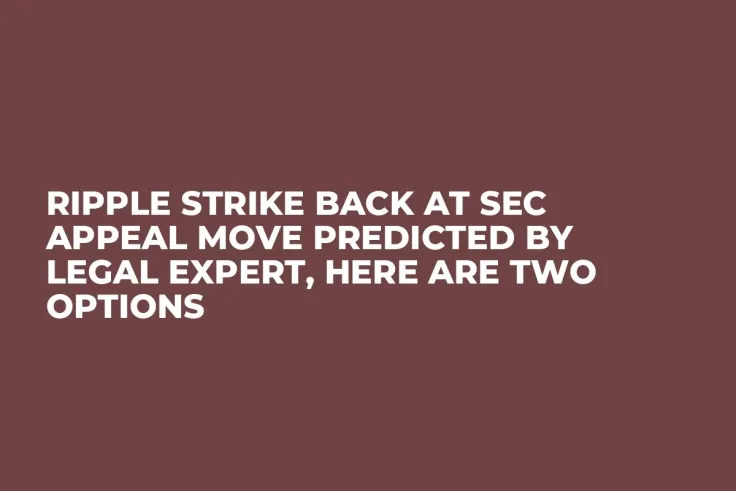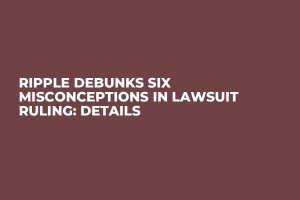
Disclaimer: The opinions expressed by our writers are their own and do not represent the views of U.Today. The financial and market information provided on U.Today is intended for informational purposes only. U.Today is not liable for any financial losses incurred while trading cryptocurrencies. Conduct your own research by contacting financial experts before making any investment decisions. We believe that all content is accurate as of the date of publication, but certain offers mentioned may no longer be available.
The Ripple lawsuit took a new turn as, in a Wednesday filing, the SEC notified its intent to move for an interlocutory appeal to the Second Circuit Court of Appeals.
In the document submitted, the SEC stated it intends to seek an interlocutory appeal on Judge Torres' ruling that programmatic sales and other sales of XRP do not constitute securities transactions.
According to CryptoLaw, Judge Torres and the Second Circuit must both agree with the SEC's arguments for why an interlocutory appeal should be allowed before the trial on allegations filed against Ripple executives Brad Garlinghouse and Chris Larsen, as well as the remedies phase of the ruling on institutional sales.
If the SEC's interlocutory appeal motion is denied, the SEC will have to wait until after the trial and remedies phases to file an appeal, according to CryptoLaw.
Epic showdown predicted by legal expert
That said, a legal expert who goes by "MetaLawMan" on Twitter has referred to the issue at hand as "complicated legal concepts." This is because the SEC faces legal and procedural hurdles to getting permission to proceed with an interlocutory appeal.
SEC/Ripple, Interlocutory Appeal analysis
— MetaLawMan (@MetaLawMan) August 10, 2023
This post will address what I see as Ripple's options in responding to the SEC's request to Judge Torres for certification of an interlocutory appeal.
Option 1: Oppose the motion to certify the appeal.
Ripple could say that the… https://t.co/cMVhARiR79?from=article-links
The legal expert predicts that Ripple might choose to respond to the SEC's request to Judge Torres for certification of an interlocutory appeal in any of these two ways.
First, in option one, Ripple could oppose the motion to certify the appeal. Ripple could argue that the July 13 ruling is correct and an interlocutory appeal would be a waste of time and inefficient, given the strong chance of another appeal following the trial of Ripple executives.
The second option might be for Ripple to agree with the SEC that an interlocutory appeal is appropriate, while the time when the appeal begins would be an open question. Another possibility along these lines is that the SEC's victory on institutional sales is reversed, effectively nullifying any potential penalty and trial.
MetaLawMan believes that the first option, Ripple opposing the motion, seems more likely because they do not want to agree with the premise that there are "substantial grounds for difference of opinion" on Judge Torres' ruling, which is part of the legal standard for certifying an interlocutory appeal.
Other considerations include the possibility that a crypto law might be enacted, and the chance that a new administration might arrive on the scene with a different view of the SEC's approach toward crypto enforcement operations.


 Dan Burgin
Dan Burgin Vladislav Sopov
Vladislav Sopov